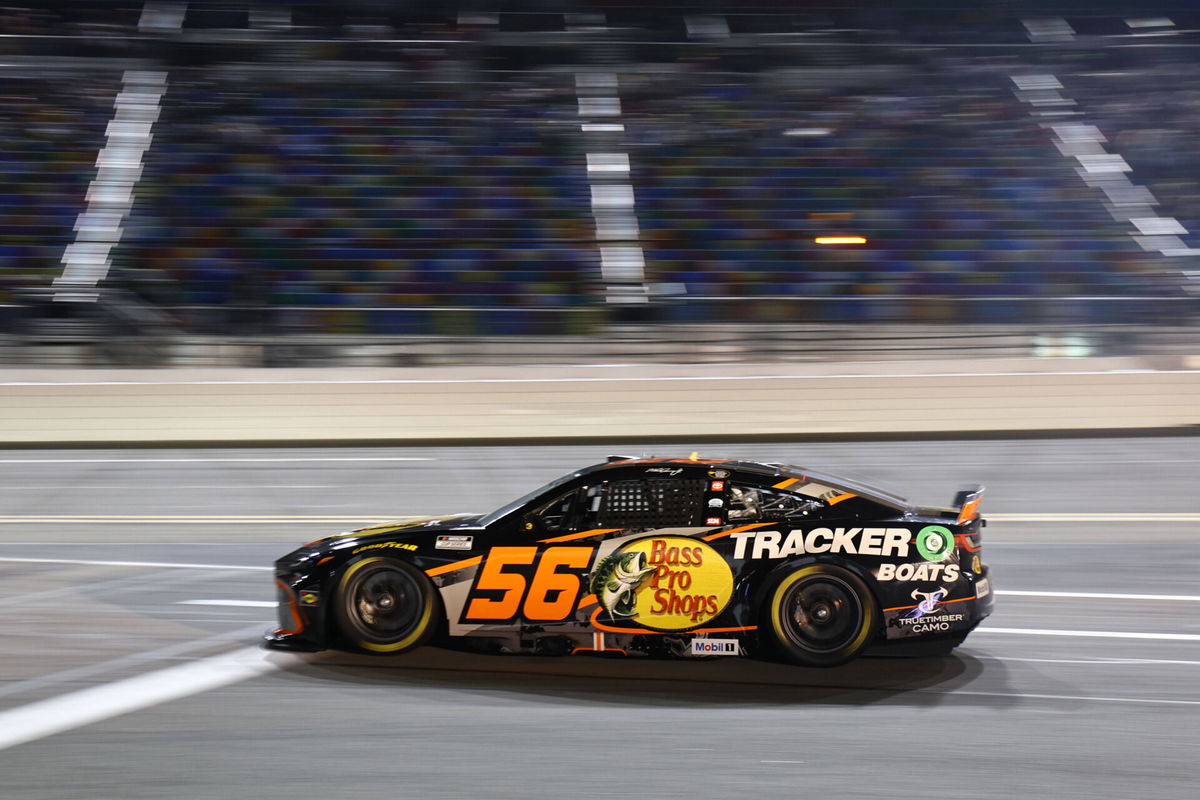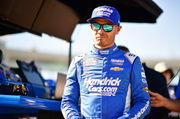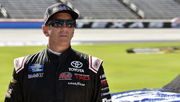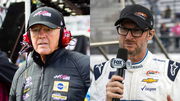
Imago
NASCAR, Motorsport, USA Duel 1 at DAYTONA Feb 13, 2025 Daytona Beach, Florida, USANASCAR Cup Series driver Martin Truex Jr. 56 during Duel 1 at Daytona International Speedway. Daytona Beach Daytona International Speedway Florida USA, EDITORIAL USE ONLY PUBLICATIONxINxGERxSUIxAUTxONLY Copyright: xPeterxCaseyx 20250213_mcd_bc1_68

Imago
NASCAR, Motorsport, USA Duel 1 at DAYTONA Feb 13, 2025 Daytona Beach, Florida, USANASCAR Cup Series driver Martin Truex Jr. 56 during Duel 1 at Daytona International Speedway. Daytona Beach Daytona International Speedway Florida USA, EDITORIAL USE ONLY PUBLICATIONxINxGERxSUIxAUTxONLY Copyright: xPeterxCaseyx 20250213_mcd_bc1_68
NASCAR was founded on moonshine-runners who outran law enforcement officials. However, we are a long way away from that time, as the sanctioning body strictly monitors drivers’ actions. From modifying engines to intentionally wrecking a rival, many infractions invite NASCAR’s punishment. Most penalties make sense, given the highly intense nature of the sport. But a recently released ‘weighty’ regulation baffled the community.
Watch What’s Trending Now!
The stock car racing series implements a minimum weight requirement for all race cars. That hovers around the 3400-3500 pound bracket. Given the ingenious ways that teams have resorted to meet this requirement, NASCAR just stepped up its inspection. It involves the drivers, too.
ADVERTISEMENT
NASCAR adds a ‘weighty’ condition
All race cars go through pre-race tech that weighs them. Drivers, on the other hand, are periodically checked throughout the year. There is a tolerance of 0.5 percent, about 17 pounds, in the post-race inspection to allow for any natural loss of weight. Many drivers have broken that tolerance level. Alex Bowman’s No. 48 Chevrolet crossed that extra 17-pound limit during the 2024 Charlotte Roval race. Most recently, Sammy Smith was disqualified after a failed post-race weight inspection at the 2025 BetMGM 300 race. The JR Motorsports driver had a shot at winning the race before finishing 5th, but lost his top-five finish. In lieu of these multiple infractions, NASCAR tightened up its rules.
According to journalist Bob Pockrass’ post on X, NASCAR will now conduct surprise weight checks of drivers themselves. He wrote, “NASCAR modified rule book on vehicle weight as far as driver weight — driver weight determines minimum vehicle weight. Drivers get weighed typically prior to season. Now it looks like they will get weighed multiple times to keep them from trying to add weight for a weigh-in.” This procedure is meant to establish a ‘driver weight bracket’. Drivers would be closely inspected in every check, as they “will be allotted +/- 3% of their baseline weight during reweighs.”
NASCAR modified rule book on vehicle weight as far as driver weight — driver weight determines minimum vehicle weight. Drivers get weighed typically prior to season. Now it looks like they will get weighed multiple times to keep them from trying to add weight for a weigh-in. pic.twitter.com/KoHfuxmkWq
— Bob Pockrass (@bobpockrass) May 28, 2025
ADVERTISEMENT
There are many sly methods that race teams can fall upon to meet the minimum weight requirement. They have put weight in a helmet bag. Teams have put different air in the tires for tech in order to make the car heavier. Hence, NASCAR’s latest move for regular weigh-ins is also designed to root out teams that potentially intentionally add body weight during the season, gaining an advantage over the rest of the field. The new regulation also mentioned what would happen in case a racer’s weight is above the limit. “This tolerance will be calculated using the same rounding technique as used for their weight bracket. If a driver’s weight falls outside of this tolerance and changes their baseline weight bracket, a new baseline driver weight bracket will be established.”
Evidently, NASCAR is stepping up its approach to handling weight penalties. However, this is not very popular among fans, who have already ridiculed the move.
ADVERTISEMENT
Top Stories
Denny Hamlin Faces Unthinkable Loss After Tragic House Fire on Parent’s 52nd Anniversary Night

$110,000 Richer Kyle Larson Says ‘You Can’t Count Him Out’ After Lucky Caution to Fend Off 20 YO HMS Prodigy

Ross Chastain Recalls the Shady Sponsor Deal as “Red Flags” Exploded Into Federal Raid Just Days After Lavish Christmas Party

New Audio Related To Greg Biffle’s Final Moments Emerges Days After Statesville Tragedy

Dale Jr. Warns of Deeper Issues as Joe Gibbs Parts Ways With Decade-Long Executive

Fans are flabbergasted
Well, many NASCAR drivers have favorite cuisines that help them focus on racing. For instance, Dale Earnhardt Jr confessed to smoking and drinking beer ahead of a tough race weekend. Then, Joe Gibbs Racing driver Chase Briscoe loves digging into chicken nuggets and burgers to focus. So a fan ridiculed NASCAR’s strict regulation that could put drivers’ eating habits at risk. They wrote, “IMO this is NASCAR promoting an eating disorder culture . drivers shouldn’t have to cut weight like in boxing to make a living . Rare NASCAR L.” In other sports that require physical confrontation, like boxing, wrestling, and others, players’ weights are more important. But in NASCAR, the driving skill should be highlighted more, as a fan sarcastically wrote: “Now streaming on Prime: boxing style driver weigh-in live from the start/finish line.”
During NASCAR’s golden age, we had many happy and healthy drivers. For example, 1963 Daytona 500 winner Tiny Lund was famous for his big frame. Three-time Cup Series champion Tony Stewart also had a bulky structure, but stamped his legendary prowess nonetheless. So, one fan wrote, “Good thing Tony is retired.” Somebody else emphasized how NASCAR just made things more difficult for teams. With an unpassable Next-Gen car wringing out the best strategies, this new rule may fumble things up more. They wrote, “That’s gonna play hell with the teams. If a driver gains 10 pounds they’ll have to take the weight out of the car. 🙄” Another fan threw a jab at the officials who came up with this idea: “Nascar officials should do the same.”
ADVERTISEMENT
Clearly, NASCAR’s new regulation has not received the best feedback. Let us see how teams and drivers react to this ‘weighty’ condition.
ADVERTISEMENT
ADVERTISEMENT
ADVERTISEMENT

